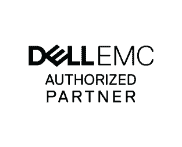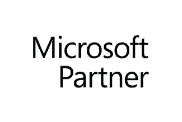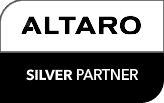LinkedIn is testing a ‘Premium Company Page’ subscription service for SMEs which includes AI-produced content and tools to grow follower counts, as well as other features to raise the profiles of subscribers.
What Is It?
LinkedIn says the LinkedIn Premium Company Page is: “a subscription to help you make your Page stand out and convert more LinkedIn members into clients for your business. Premium Company Page gives you access to certain features that are only available to premium subscribers.”
How Much?
This service is rumoured to cost a pricey $99.99 per month per Page, reducing to $839.88 per page for an annual subscription. LinkedIn says that users can subscribe to their Premium Company Page from their Page super admin view. Users do not need a Premium Business subscription to get a Premium Company Page (these are separate subscriptions).
What Do You Get?
The LinkedIn Premium Company Page offers users a range of premium LinkedIn features. These are:
– A custom call-to-action (CTA) button. As the name suggests, this is a button in which users can select their own custom name and unique url (for the call-to-action). Super admins who subscribe to the Premium Company Page can add this call-to-action button at the top of the Page, feed posts, and search result cards.
– The “Who’s visited my Page?” feature. Again, as the name suggests, this feature allows Page admins to review visitor traffic and demographic trends across different time periods in Visitor Analytics. The Admin of a Premium Company Page can also use this feature to review a list of recent visitors to your Page within the Who’s Visited your Page section, subject to those visitors’ privacy settings. Admins can also see up to one new visitor’s details each day when eligible members visit the Page.
– The “Custom Testimonial” feature allows the inclusion of a testimonial or quote from a client and an optional image at the top of a subscriber’s LinkedIn Page. Linked says this feature will be made available “gradually.”
– Perhaps the most noteworthy feature is the “AI-powered post-writing assistance.” In other words, this is the use of LinkedIn’s generative AI (only available with a Premium Company Page subscription). LinkedIn says subscribers can use it to “generate a first draft of a post for your Page using your ideas on a topic” and that the tool “quickly transforms your ideas into a draft that you can edit before posting.”
The ability to “auto-invite engaged members to follow your Page.” LinkedIn says, with this feature “you can grow your followers by automatically inviting members who engage with your content to follow your Page” and that “After you enable automatic invitations (auto-invites), members who publicly reacted, commented on, or shared your posts in the past 30 days will be invited to follow your Page”.
A gold LinkedIn ‘IN’ logo in the top right corner of each subscriber’s Page header to show that they have a Premium Company Page subscription. LinkedIn says this will help subscribers’ pages to stand out.
Premium Services – Monetising LinkedIn
LinkedIn’s Premium Company Page is another example of how Microsoft’s LinkedIn has been engaged in significantly monetising its platform through the introduction and expansion of premium services, although these services still represent a relatively small percentage of overall users. This year, for example, LinkedIn’s premium subscriptions saw a notable 55 per cent growth year-over-year (Kinsta), highlighting the popularity of these services and the marketing efforts of LinkedIn.
Examples of other primary premium services offered by LinkedIn include:
– LinkedIn Premium Career. This service is designed to help individuals enhance their job search and career development by offering features such as the ability to see who viewed their profile, detailed insights into competitive applications, and direct messaging capabilities through InMail.
– LinkedIn Sales Navigator. This tool is geared towards sales professionals and offers advanced search capabilities, lead recommendations, and the ability to track potential and existing clients. It’s useful for generating leads and managing sales processes.
– LinkedIn Learning. Formerly known as Lynda.com, LinkedIn Learning provides a wide range of courses aimed at professional development, covering topics from business and technology to creative subjects.
– LinkedIn Premium Business. This service focuses on providing deeper insights into business trends and the ability to make more informed decisions through more comprehensive market data.
Also, LinkedIn has rolled out other features like Collaborative Articles and verification badges, to enhance user engagement and trust on the platform. These initiatives not only improve the functionality of LinkedIn for its users but also contribute to LinkedIn’s overall monetisation strategy by making the platform more indispensable to business and career-oriented people.
While some critics have suggested that the features of LinkedIn Premium aren’t that much better than the free offerings, LinkedIn’s premium services can provide a way to gain advantages for those looking to expand their professional network and access detailed insights and opportunities not available with a basic account.
Competition
In addition to monetising more of its premium services, LinkedIn’s Premium Company Pages also provides a way for LinkedIn to compete with other business-oriented social networking and content platforms’ offerings. For example, Facebook Business Pages, Twitter for Business/X For Business, Instagram Business Accounts, and Google My Business all offer tools that support brand visibility, customer engagement, and online marketing.
How Do You Sign Up?
Since it’s early days and still in the testing phase, who can see the options for signing up (and a free trial first) depends on the user’s “eligibility” and LinkedIn says those who go to their LinkedIn homepage “may see different ways to try or purchase Premium.”
What Does This Mean For Your Business?
The introduction (it’s still being tested at the moment) of LinkedIn’s Premium Company Page service marks a strategic move by Microsoft’s LinkedIn to further monetise its platform while offering enhanced tools for SMEs to distinguish themselves in a crowded digital marketplace. This service is particularly significant as it includes AI-produced content and features designed to increase follower counts and enhance page visibility, which could potentially be a game-changer for some small to medium-sized enterprises looking to expand their reach and convert LinkedIn members into clients.
For Microsoft’s LinkedIn, the Premium Company Page service represents another layer of monetisation on an already profitable platform. By adding premium features that are targeted specifically at businesses, LinkedIn can increase its revenue streams and also its appeal as a business-to-business service provider in the competitive social media landscape. This aligns with LinkedIn’s recent strategy of rolling out more specialised and high-value features, such as Collaborative Articles and verification badges, (aimed at boosting user engagement and trust).
For SMEs, the benefits of subscribing to LinkedIn’s Premium Company Page could be substantial, if it lives up to the hype. Features like custom call-to-action buttons, AI-powered post writing assistance, and advanced analytics on page visitors could enhance the marketing capabilities of a business directly within the LinkedIn ecosystem. For example, these tools may allow businesses to craft more targeted, effective marketing strategies and to engage more personally with both existing and potential new clients. Also, the visibility boost provided by premium features like the gold LinkedIn IN logo could potentially help SMEs stand out against their competitors on the platform.
However, the introduction of these premium services is also a sign of increased competition (and monetisation efforts) among social networking platforms that cater to business users. LinkedIn’s move, therefore, places it in more direct competition with platforms like Facebook Business Pages, Google My Business, and Twitter for Business/X For Business, each of which offers tools for business visibility and customer engagement. As LinkedIn enhances its offerings, these platforms may also respond by innovating and updating their services, which could lead to a more dynamic, competitive environment that pushes further advancements in digital business tools, and provides more new marketing options for business users.
Ultimately, therefore, LinkedIn hopes its Premium Company Page will make money and help solidify its position as a leader in professional networking and as an important platform for business growth and digital marketing. As and when this service rolls out, it will be interesting to see how it influences the competitive dynamics among the major players in social media and digital marketing.




